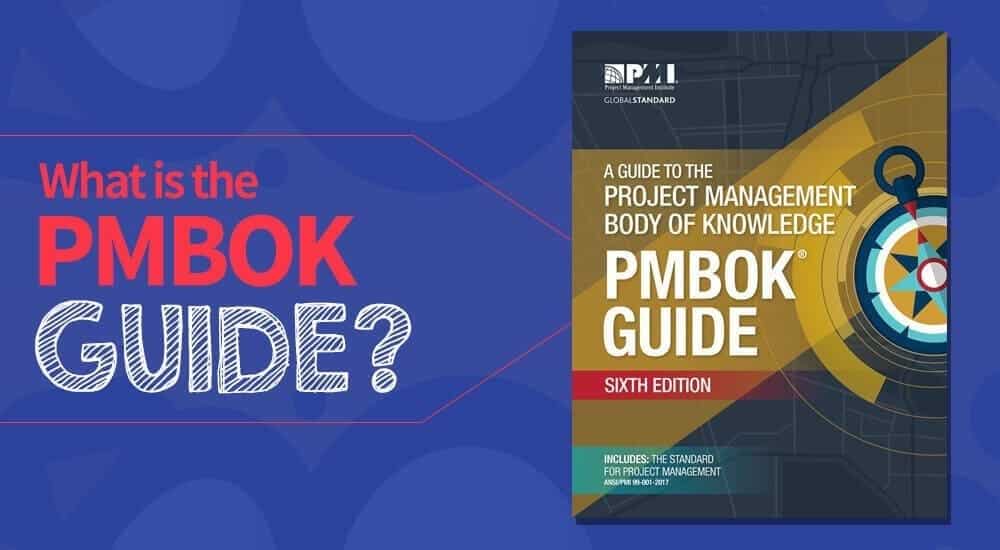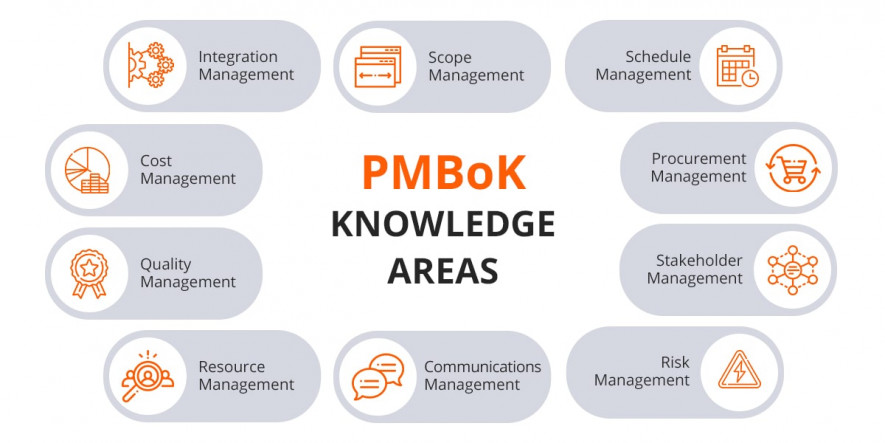Table of Contents
What is Project Management Area of Knowledge?
Let me make it clear as to what is project management area of knowledge. It is a vast state of knowing in accordance to PMBOK ( Project Management Body of Knowledge) it is a recognized area of project management that is clarified and reveals the knowledge requirements. The fact is all project management processes that are included in the PMBOK are divided into10 areas. These are known as the Knowledge Areas.
- Integration Management
- Scope Management
- Schedule Management
- Cost Management
- Quality Management
- Resource Management
- Communications Management
- Risk Management
- Procurement Management
- Stakeholder Management
Upcoming Batches of PMP® Certification Training Course :-
| Batch | Mode | Price | To Enrol |
|---|---|---|---|
| Starts Every Week | Live Virtual Classroom | 14900 | ENROLL NOW |
Well, the above ten says a lot of learning and each sphere and region consists of jargon, tools, concepts and tasks. To put it in another way one needs to learn and understand each of them for successfully managing a project. However if the project is small one can knock the number 9, that is project procurement management. Whatsoever in order to accomplish the PMP qualifications the candidates will have to answer questions on the 10 areas.

Why do we have Knowledge Areas?
One has to read my article and go through this carefully. By the time he/she gets to the end of the article the candidate will get to know the difference between a Knowledge Area, a Process Group and a process. Candidates will also know as to how they correlate with each other and most significantly why they matter.
The Knowledge Areas are helpful and user-friendly to group together theory and practical techniques. The project management best rule is when the candidates are able to work throughout and all over the areas in order to get the project done. Other than the ten areas the candidates may need to master in professional skill, such as the qualities ‘to lead’.
However generally for most people seasoned and well-versed in the fields covered in the PMBOK Guide would be sufficient enough for the completion of the project. One must read the guide carefully and understand and whosoever does it cannot find it difficult for the finishing of the project.
Project Integration Management
The project integration management’s definition is when we bind a project together. This management compromises of basic plans as developing a project charter that is generated during the starting phase. Thus the project is set up and the project manager is appointed.
Under the management plan there is the project roadmap that helps the project to reach a successful end. Further the project plan is accepted by the stakeholders or sponsors, and then it is watched and tracked through a change log as the project makes its headway. The project integration field also contains the directing and has control of the project work for the result. If a problem is encountered there can be changes in the project work before the project closure.
Enroll in our PMP Certification today and develop a strong foundation in the principles of project management.
Project Scope Management
Scope is associated to the work of the project. So, this covers master plan scope management, which is a section of the project management system. Added to it the scope is explained in the scope statement. All the lists are made as a protection to reduce the major project threats. Also when the project is going on to make sure the output are being accepted by the sponsor or the stakeholders.
Project Time Management
For the time management the project is cut up into pieces of work. As for example there is a set of programs the start dates and the deadlines, as well as the financial estimation of each work. It is to be noted that there can be changes over the steps in any project and things can be revised frequently. Fact is nothing is fixed and there can be changes when needed.
There is a plan scheme management that requires a timetable for the project that decides as to who is responsible for what. So, a list is create where the duties are mention that touches on every feature of the project.
These pieces of work are then put in order that makes awareness, and any weakness between them is note.
These weaknesses are then firmly deciding to be either finish-to-start, finish-to-finish, start-to-start, or start-to-finish.

Project Cost Management
This domain circles around the project’s financial plan which means having good calculating devices to make certain that the funds cover the extent of the project.
All these are observing regularly to keep the stakeholders or the sponsors well-inform.
Plan cost management will regulate the modus operandi to set up the budget and this is also added as to how and if it needs to be changed and then what course of action would be used to control it.
For each task, there will be a roughly calculated cost, which comprises all resources such as labor, materials, and anything else needed to finish the task.
When all the task costs are put together it will signify the financial plan of the project. In case the budget goes more than estimation then it needs to be controlled.
Project Quality Management
Quality management is a prime and major part of the project. The project can be delivered on time and within the financial plan, but if the status is not up to the standard, then the project is a non-success. So, every aspect is marked.
The process needs to add a quality guarantee that makes sure that the grade standards are met.
Project Human Resource Management
The project team is the most important asset and so, it is the key point to form the best group and make sure and see to it that all are happy. But at the same time it is necessary to keep a track on their performance to be sure that the project is moving forward as planned to do so.
A human resource management plan will set their roles and needs for the positions, as well as how they adjust in the overall project organization.
The project manager has the authority to govern the project team. The group is continuously watching to assure that they are working excellently and there are no internal conflicts and also the team is keeping satisfing.
Project Communications Management
All operations of project management are weighty and of importance but communication management can be supreme and the most important as it informs every aspect of the project.
The instructions are conveyed to the team and stakeholders and accordingly the key steps need planning for the management to go ahead with the project. At this juncture the circulation of communications is fixed, as to how it is done and with what regularity. Also it keeps an account that communications may occur when issues such as changes may arise in the project.
Project Risk Management
Project Risk Management implies to pinpoint threat and menace and to register their characteristics. This relates to spot the risks that might take place during the carry through of the project. The management maintains a risk register to keep a count of the odds, if any.
The Risk Manager requires to organize and arrange and get prepared for the risks reaction. If the risks become a matter in question, then it needs to handle and properly deal with.
They have to supervise and guide and the problem has to be solve so that further no risks would knock down the project.
Project Procurement Management
Project Procurement Management is the formation of relationships of outside dealers and suppliers for goods and services need to finish a project.
They hire subcontractors. This process is made up of five steps: to begin and arrange, choosing contract writing, keep under surveillance, closing, and completing.
Project Stakeholder Management
The stakeholders satisfy as the project is bringing into being for their requirements. The next move needs to list each stakeholder and methodize what their concerns are and how they might touch on the project.
It is a big task for managing stakeholders’ expectations and to be sure their demands are met.
Throughout the project, the manager communicates with the stakeholders and finds out if their requirements are address, and if need changes are made.
Project management knowledge areas bring a project to life. And to keep it so, the manager needs all the tools to shape it and make it free of complexes.
However, there is something to think back to that the list of ten is not absolute and complete. There may be a few more conditions and other professional skills for project completion. For example, leadership qualities can highly require. Whatsoever for people in general being efficient in the domain covered in the PMBOK Guide is sufficient enough for the project.

Now we come to this point the difference between:
Knowledge Areas and Process Groups
The simple way to remember this is:
Knowledge Areas
They make up for what you need to Know
Process Groups
They cover-up what you need to Do
The 5 PMBOK Guide Process Groups-6th Edition
The 5 Process Groups are essential for every single project. The Process Groups are:
Introducing or Opening
These steps help the candidates to draw an outline of a latest piece of work either an entire new project or a phase the candidate is about to begin. after the outline is drawn it promises the candidate to have the authority to go ahead.
Planning
These processes include all the work around setting up and scheduling tasks. There are a few options they can cover an entire project or just the chapter one is working on. And it depends the candidate might be closing one phase and preparing for the next project in parallel.
Executing
The principal part takes place when products are created. The processes allows the manager to keep a track on the job that is being done . After the examination the reports are made and if the manager find out that the project does not comply to the agreed plan, then the change management is done by the Process Group.
Continuous observation and controlling is done by the project manager. This observation is done from Day 1 till the project is in the delivery phase.

What are the Process Groups for?
Process Groups gives the manager the helping hand to apply about the knowledge in varieties of professional areas to project management. It further takes the manager and his team through totally what the team has to do at each point.
The Process Groups are not identical and same as of the project life cycle. A life cycle displays as to how the project progresses from beginning to end in different stages. Within one phase the candidate may go through all the Process Groups, or some of them. Candidates need to keep in mind not to get confused with the two.
The candidates can keep this in mind that all the Process Groups end with- ‘ing’. They are the doing words. The life cycles are related to nouns: Beginning or Introduction, Execution and Closure.
The PMBOK Guide Processes of Project Management
The PMBOK Guide explains a process as a ‘set of correlative exercise performed to build a pre-specific product, service or result’. It declares that ‘project management processes make sure the effectual flow of the project all over its life cycle’. Processes gets things finished.
Each process is fed with tools and techniques and having done with the process you get the result. The Guide has approximately 50 processes. The major part is divided into ten chapters. Each one shares with a PMI Knowledge Area. Each portion tells you which processes is put into application to the Knowledge Area, and each process falls into the Process Group.
Which Processes does the candidate have to use?
The simple answer to the query is to use the processes that gets the job done. PMI’s Pulse study announced that high-accomplished organizations use standard processes around the organization than low performers. This is true that the project becomes a success using project
It is the duty of the candidate to select the right processes for the desired outcome. One must pick and choose the processes that will work for the candidate as well as for the project. If the candidate is nervous about choosing the processes then he/she can consult the manager. However after the candidate passes the PMP exam successfully he/she gets to know about the processes.
Knowledge Areas in the PMP Exam and how to prepare
The Knowledge Areas are an important part of the exam. The candidate will also get questions on separate processes. The starting point to get ready for the exam is to learn and understand the table. For further preparations one must jot down the notes in a sheet of paper.
The candidate needs to go through the Knowledge Area as well as the Process Group. What is the logic behind it? Why and how they fit together?
Tools for preparing for the exam
The carrying on of Table 1-4 is to get the preparation for the Knowledge Area questions in the PMP exam. The candidate has to go through the guides and the exam prep tools. Added to it they need to be well-prepared for anything that may turn and associate to processes.
The Knowledge Areas and Process Groups are fundamental part of the PMBOK Guide.
Revising the Process Groups and Knowledge Areas
The candidate needs to pick up the key concepts studying the PMI Process Groups and the Knowledge Areas. Some students grasp the logic behind it speedily. While the others take more time to feel sure of one self. The finest thing is not to compare oneself to other PMP competitors but to work at one’s own speed. The student must prepare themselves with the standard PMP prep tools. They certainly need not be the most high-priced. In fact the PM Precast is cheap and affordable.
Summary
After the student is done with the thoroughgoing guide to the PMBOK Guide Knowledge Areas for project management covering the Process Groups and processes, one should be ready for the exams. Candidate will form a better design to make them work for the project later.
In order to come out rewarding and manage a project, the project manager requires to know the Project Management Knowledge Areas.
Processes wrap what a project manager and his team feels it necessary to do to furnish the project outstandingly.
Process Groups are logical groupings of processes.
It might seem difficult to deal with, but certainly with best exam prep guides and a thorough revision, one can soon find working with Knowledge Areas, Process Groups, and processes.
Recommended Reads:
- Top 9 Project Management Courses in Kolkata
- PMP certification exam cost
- TOP 20 PMP Exam Questions and Answers
- Is PMP Certification Worth It in India?
- 10 Best PMP CERTIFICATIONS IN SINGAPORE
Also Check this Video
Recommended Programs
PMP® Certification With
Training Course
98.8% Pass Rate in PMP® Exam Protected by 100% Money-Back Guarantee | PMP® certification is the gold standard for Project Management professionals.
Agile Project Management
Certification Training
An exclusively designed Program by professionals working in international firms across San Francisco, Colombo, Melbourne and Hong Kong. Become eligible for sought-after Agile & Scrum Professional jobs in Fortune 500 Companies by gaining hallmark of a quality certification on Agile Project Management.
Design Thinking Course by
Henry Harvin® Academy
Ranked no. 2 Design Thinking Course in India | Trained 1,835+ participants | Get exposure to 10+ projects | Acquire detailed training in applying Design Thinking principles | Both classroom and live online options available
Explore Popular Category









.webp)
